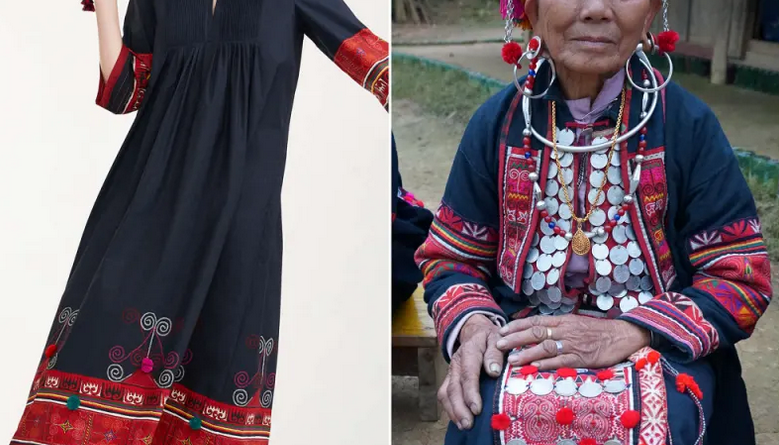MaxMara Allegedly Stole Designs From A Laotian Community For These Pricey Dresses
Source: buzzfeednews
The Oma are a small community in Northern Laos known for their beautiful red and blue garments.
A group in Laos says designer MaxMara ripped off designs from a local ethnic group with zero compensation or acknowledgment.
The Oma are a small, agricultural community living in Northern Laos, as well as in northwestern Vietnam and southern China. There’s estimated to be fewer than 2,000 Oma people in Laos. They’re known for their beautiful traditional clothing featuring indigo dye with red embroidery.
It’s these unique designs that the Traditional Arts and Ethnology Centre (TAEC) says MaxMara is using in their designer clothing. The TAEC is located in Luang Prabang, Laos. In addition to running a museum and outreach programs, the organization helps local artisans sell their goods, including work from Oma women.
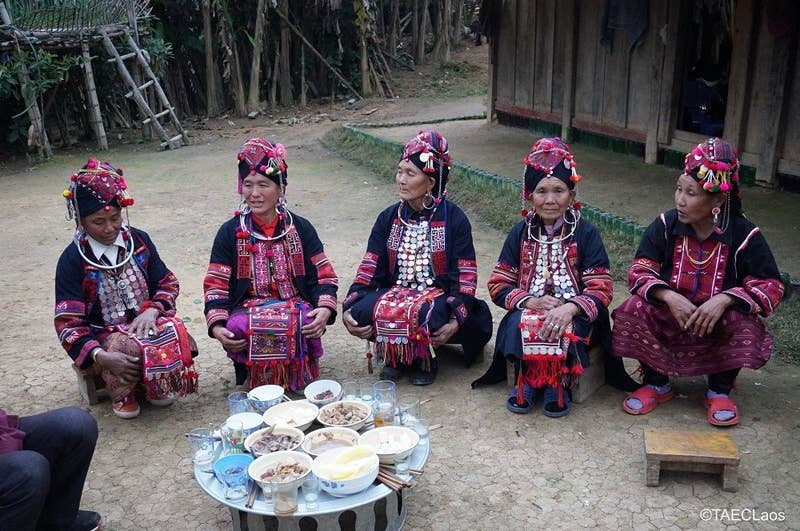
“In recent years, Oma women have begun to earn income through the sale of their distinctive crafts,” Tara Gujadhur, TAEC’s co-director, told BuzzFeed News.
“In remote communities with few economic
opportunities, these earnings are vital, and used towards improved
nutrition, health, and education for their families.”
That’s why they were alarmed to see that work apparently replicated by MaxMara. These images from TAEC show MaxMara’s clothing next to traditional Oma work.
Here you can see the sleeve of a MaxMara garment compared to the sleeve of an Oma garment.
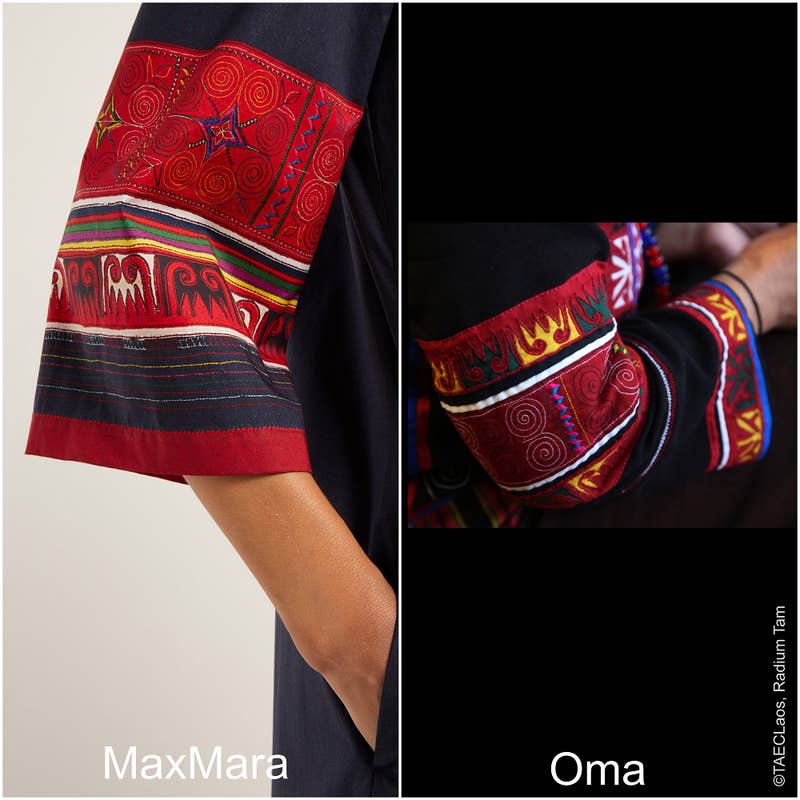
Here’s another one.
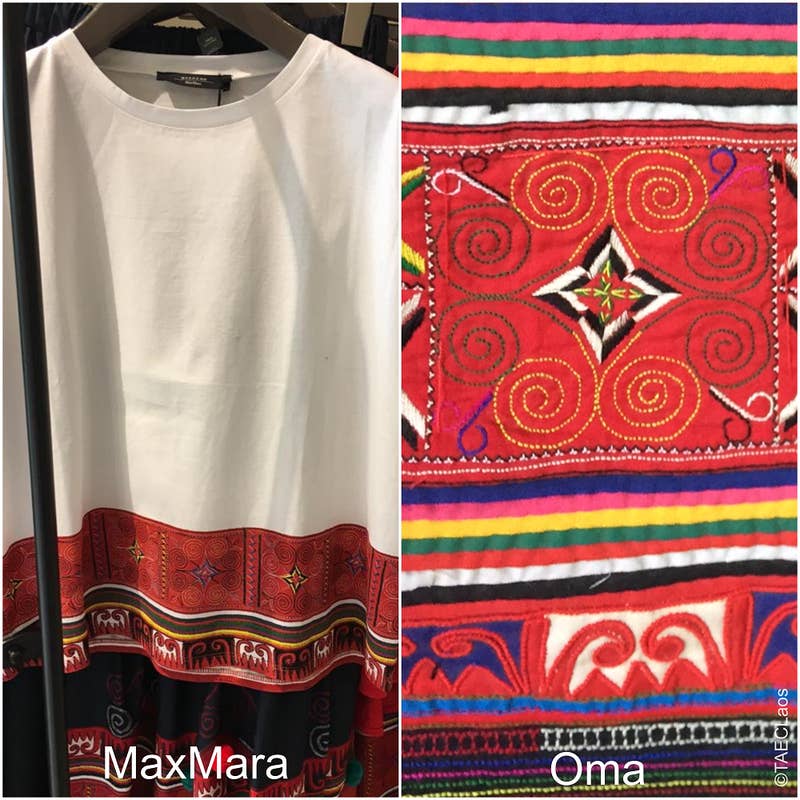
MaxMara’s clothes aren’t cheap, either. A dress called out by the TAEC is listed on MaxMara’s Canadian site for $935 (about $700 USD).
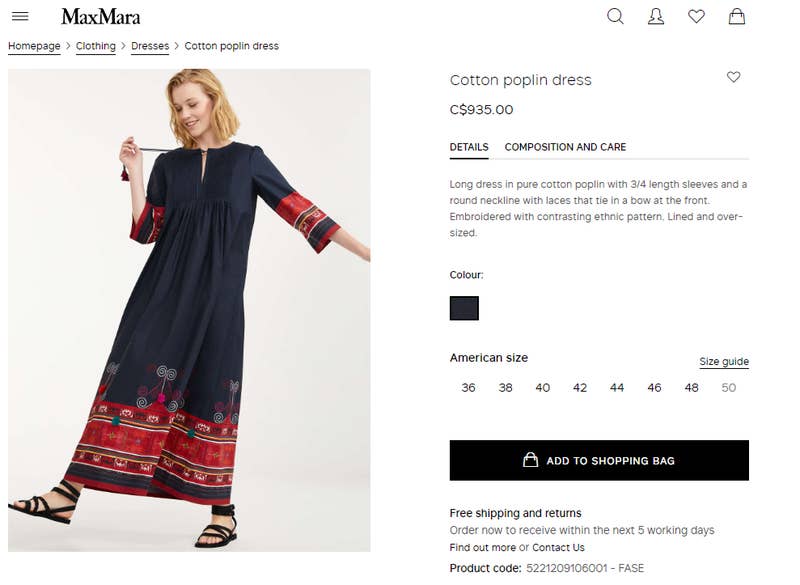
“Let’s be clear, these designs are not ‘inspired by’ or ‘an interpretation of’ Oma motifs; they are copied. The color, composition, and motifs are exact replicas, so besides being lazy and unoriginal design work, it’s also direct plagiarism,” said a post from TAEC on Facebook.

“The power imbalance here couldn’t be more stark — an international fashion brand profiting off the traditional designs of ethnic minority artisans in rural Southeast Asia. Acknowledging and compensating artisans for their work and creativity, no matter who they are and where they come from, is important.”
MaxMara has not responded to a request for comment from BuzzFeed News. The designer also hasn’t responded to TAEC, who first reached out to the designer on April 2.
“Nothing about why they have not acknowledged the source of these motifs. Nothing about how they sourced these patterns, and if they compensated the artisans for their creative property,” the group said on Facebook.
Now, the TAEC wants action.
They’re asking MaxMara to pull the clothing in question, donate any proceeds back to “an organization that advocates for the intellectual property rights of ethnic minorities,” and to commit to never plagiarizing designs again.

